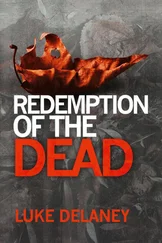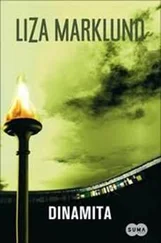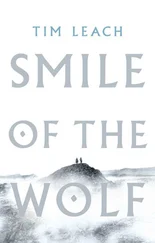‘They took that on Saturday, said it was standard procedure.’
‘Kurt was in the civil defence?’
Gunnel Sandström nodded. ‘All these years,’ she said. ‘He did the officers’ course at the Home Guard Combat School in Vällinge.’
‘Where did he keep the rifle?’
‘In the gun cabinet. Kurt was always meticulous about keeping it locked. Even I don’t know where he kept the key.’
‘So he must have taken it out himself?’
Another nod.
‘Have you ever been threatened?’
She shook her head this time, slumping a little further.
‘No strange phone calls before the one on Friday, no odd letters?’
The woman stiffened, tilting her head slightly.
‘There was a strange letter in today’s post,’ she said. ‘Complete nonsense, I threw it in the bin.’
‘A letter? Who from?’
‘Don’t know, it didn’t say.’
‘Have you emptied the bin?’
Gunnel Sandström thought for a moment.
‘I don’t think so,’ she said, getting up and going over to the cupboard under the sink. She pulled out the bin and rummaged through the crusts and potato-peelings.
She looked up at Annika. ‘It’s not here. I must have emptied it after all.’
‘You wouldn’t have thrown it somewhere else?’ Annika asked.
The woman put the bin back in the cupboard.
‘Why do you think it’s important?’ she asked.
‘I don’t know if it is important,’ Annika said. ‘What did it say?’
‘Something about the peasants’ movement, I don’t really know. I thought it was something about the Federation of Swedish Farmers.’
‘A mail-shot, a leaflet?’
‘No, nothing like that. Handwritten.’
‘Think for a moment. Is there anywhere else you might have put it?’
‘In the fireplace, I suppose,’ she said, pointing.
In two strides Annika was at the hearth. There were several crumpled balls of paper in there, at least two of them coloured flyers from local shops. She took a piece of wood out of the basket and prodded them.
The woman came over to her, holding out her hand for them.
‘Yes, it might be here, I do throw paper on here sometimes. It’s good for getting the fire started.’
‘Hang on,’ Annika said. ‘Have you got any gloves?’
Gunnel Sandström stopped and looked up at her in surprise, then disappeared into the hall. Annika leaned forward to look at the balls of paper. Three were glossy adverts, one green with black text; the fifth was a sheet of lined A4.
‘Get that one,’ Annika said when the woman came back wearing a pair of leather gloves, pointing at the lined paper.
Gunnel Sandström leaned over, and with a little groan managed to get hold of it. She straightened up and smoothed it out.
‘Yes,’ she said. ‘This is it.’
Annika moved to stand beside her as she slowly read out the anonymous text.
‘ The present upsurge of the peasant movement is a colossal event ,’ Gunnel read in a tone of blank suspicion. ‘ In China’s central, southern and northern provinces, several hundred million peasants will rise like a mighty storm, like a hurricane, a force so swift and violent that no power, however great, will be able to hold it back .’
She lowered the letter.
‘What does that mean?’
Annika shook her head. ‘I don’t know. Have you still got the envelope?’
They found it beneath the adverts, a simple little envelope with the ‘Sverige’ brand, and an ice-hockey player on the stamp. It was addressed to the Sandström family and postmarked in Uppsala the previous day.
‘Can you lay it out on the table so I can copy it?’
Dark fear swept across Gunnel’s eyes. ‘Do you think it’s something serious?’
Annika looked at the woman, her grey hair, her knitted cardigan, soft cheeks and bent back, and was overwhelmed by a sympathy that took her breath away.
‘No,’ she said, trying to smile. ‘I don’t think so. But I still think you should tell the police about the letter.’
Annika copied the letter on the kitchen table. The handwritting was even, soft and round, the words symmetrically placed on the page, every other line left blank to make it easier to read. She noted the torn edge, which showed that the sheet had been pulled from a pad of lined paper, and wondered if she ought to feel the quality of the paper in one corner, but decided against it.
‘Are you going to write anything in the paper about Kurt?’ Gunnel Sandström asked when she had stood up and pushed in her chair.
‘I don’t know,’ Annika said. ‘Maybe. If I do, I’ll call you first to let you know.’
She took the woman’s hand.
‘Have you got anyone to look after you?’ she asked.
Gunnel nodded. ‘We’ve got a son and two daughters. They’re coming this afternoon with their families.’
Annika felt the room spin again. There was something here, a sense of belonging that ran through the generations, a love that had lived here for centuries.
Maybe people shouldn’t leave their roots , she thought. Maybe our longing for progress ruins the natural force that makes us capable of love .
‘You’ll be okay,’ she said, surprised that she was so certain.
Gunnel Sandström looked at her with eyes that Annika could see were devoid of something vital.
‘I’m going to get justice as well,’ she said.
Then she suddenly turned and went out into the hall, then up a creaking staircase to the floor above.
Annika quickly pulled on her outdoor clothes, and hesitated at the foot of the stairs.
‘Well, thank you,’ she shouted cautiously.
No reply.
Berit Hamrin bumped into Annika at the caretaker’s booth by the lifts.
‘Are you coming for something to eat?’ she asked.
Annika put the car-keys on the counter and looked at the time.
‘Not today,’ she said. ‘I’ve got loads to check, and I have to get the kids. Are you faint with hunger, or have you got time to look at something?’
Berit pondered this theatrically.
‘Faint with hunger,’ she said. ‘What is it?’
‘Follow me,’ Annika said, and sailed off towards her office. She tossed her outdoor clothes in the usual corner and emptied the contents of her bag on the desk, picking out her notebook. She leafed through to the last page, then rushed round the desk and tugged open the second drawer, pulling out another pad.
‘Read this,’ she told Berit, holding up two pages of notes.
Her colleague took the first pad and read the opening line aloud.
‘ The present upsurge of the peasant movement is a colossal event .’ She put down the pad. ‘But this is a classic text.’
‘In what way?’ Annika said, like a coiled spring.
Without looking away from Annika, Berit intoned loudly and clearly from memory:
‘ In China’s central, southern and northern provinces, several hundred million peasants will rise like a mighty storm, like a hurricane, a force so swift and violent that no power, however great, will be able to hold it back .’
Annika felt her jaw drop; she stared speechlessly at her colleague.
‘Report on an investigation of the peasant movement in Hunan,’ Berit said. ‘Written in nineteen forty-nine, if I remember rightly. One of Mao Tse-tung’s most famous works. We all knew it off by heart.’
Annika searched through a box and pulled out a couple more notebooks. She leafed through them until she found what she was looking for.
‘What about this?’
She gave Berit the notes she had taken up in Luleå.
‘ There is no construction without destruction ,’ Berit read. ‘ Destruction means criticism and rejection, it means revolution. It involves reasoning things out, which means construction. If you concentrate on destruction first, you get construction as part of the process .’
Читать дальше












